Air purifier vs dehumidifier - which should you buy for a happy and healthy home?
They’re both so different, but is one better than the other?
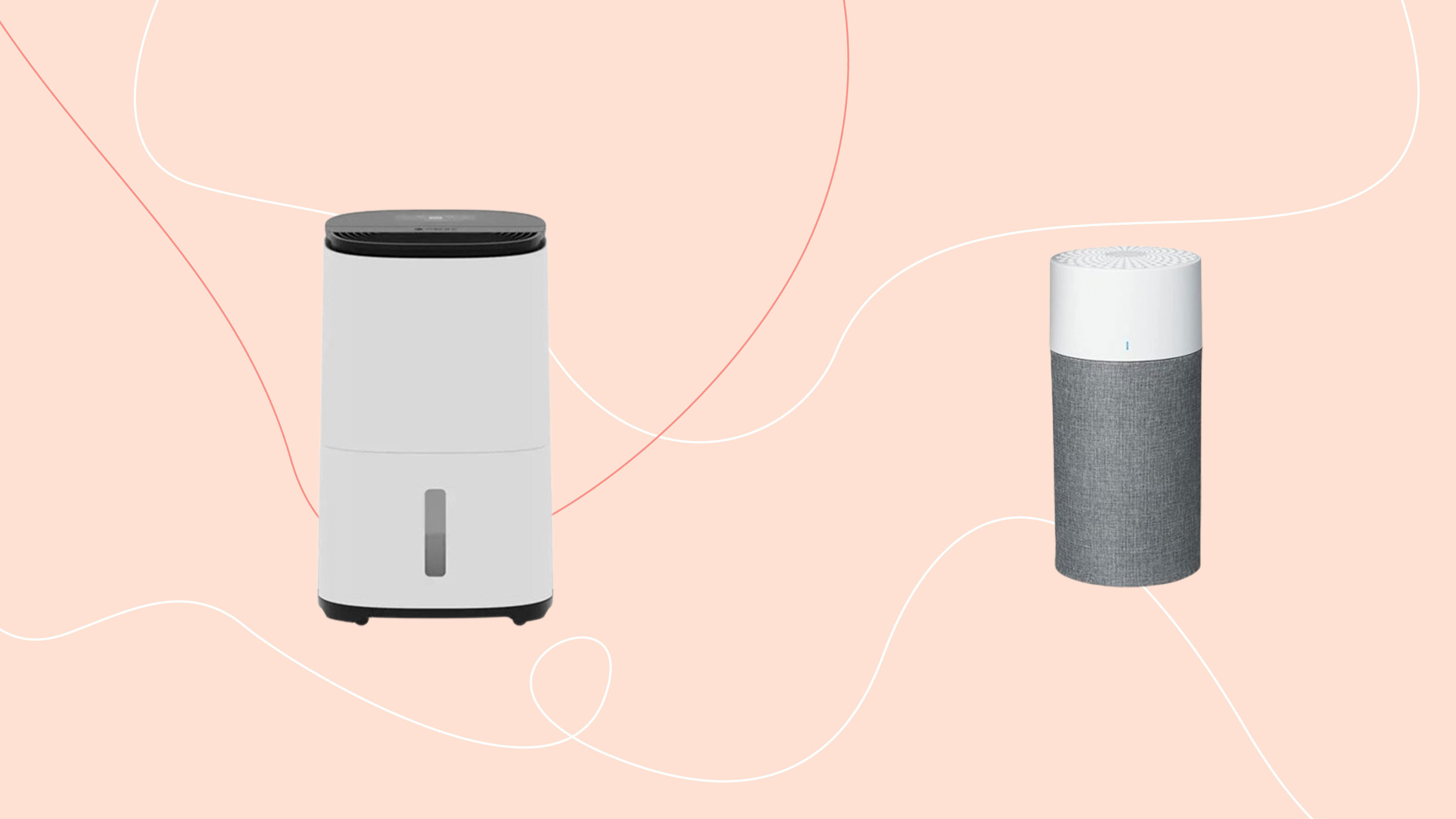

The quality of the air in our homes has become as important to us as how our homes look. This is where the air purifier vs dehumidifier debate comes in, while these appliances look very similar and can both improve the overall health of your home, they are very different appliances.
The best air purifiers do what it says on the tin and purify the air, removing dust and pollution particles. The best dehumidifiers on the other hand reduce the moisture by drawing it out of the air.
At Ideal Home, we've tested many air purifiers and dehumidifiers to find the best models and work out everything that they can do around the home. We understand that both of these appliances can take up a lot of space and money, so if you're on a budget and can only choose one we have the low down on how to choose if an air purifier or a dehumidifier is the best investment for you.
From their overall usefulness to their affordability, it’s time for the air purifier vs dehumidifier debate to begin!
Air purifier vs dehumidifier
That’s why we’ve consulted with the experts and used our own testing experience to compare the two and find out which is the superior appliance if you can only invest in one.
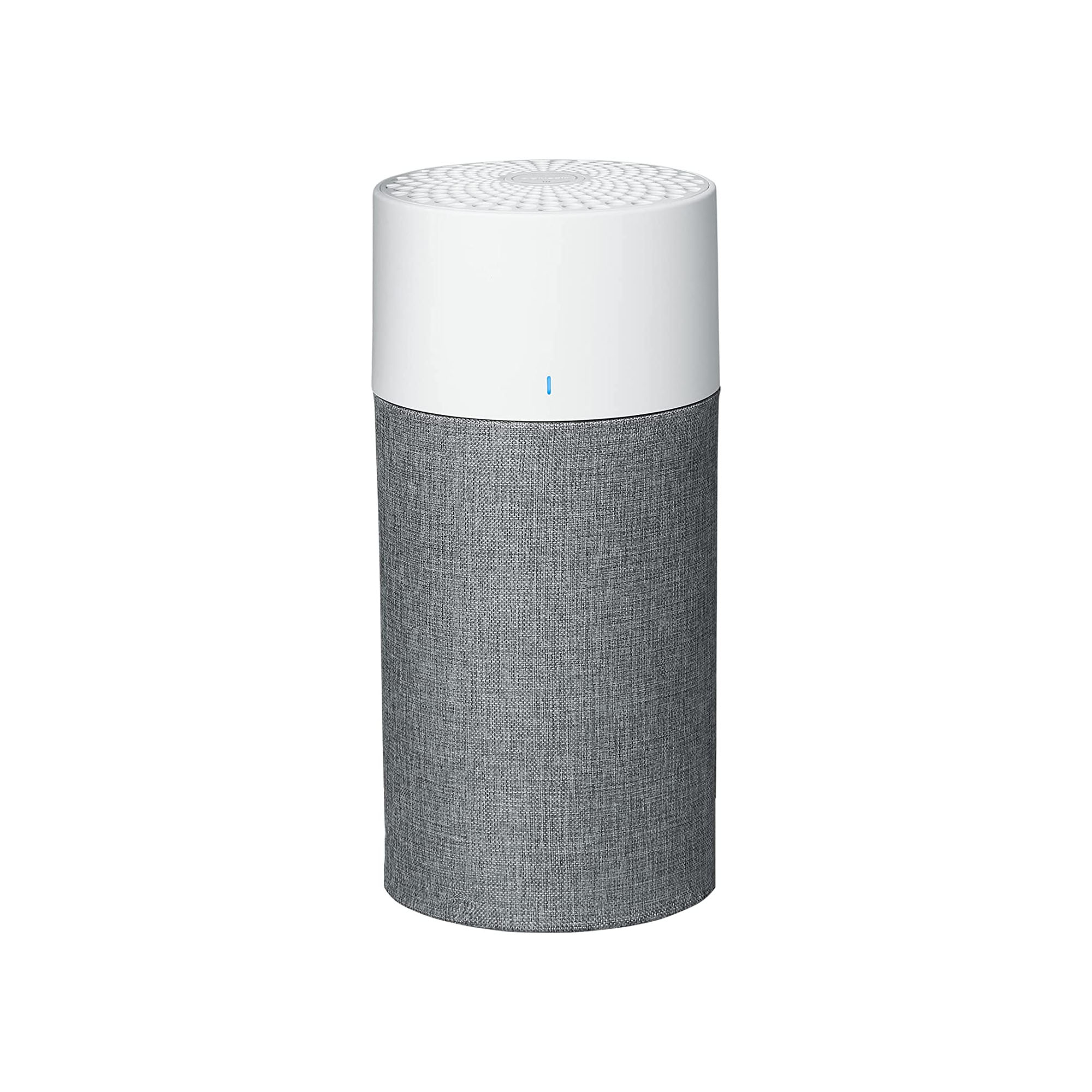
Stylish, user-friendly, quiet, energy-efficient, and easily portable thanks to its lightweight design, there's a lot to love about the Blueair Blue 3210 air purifier. That's why we think it's the best air purifier to invest in, overall.
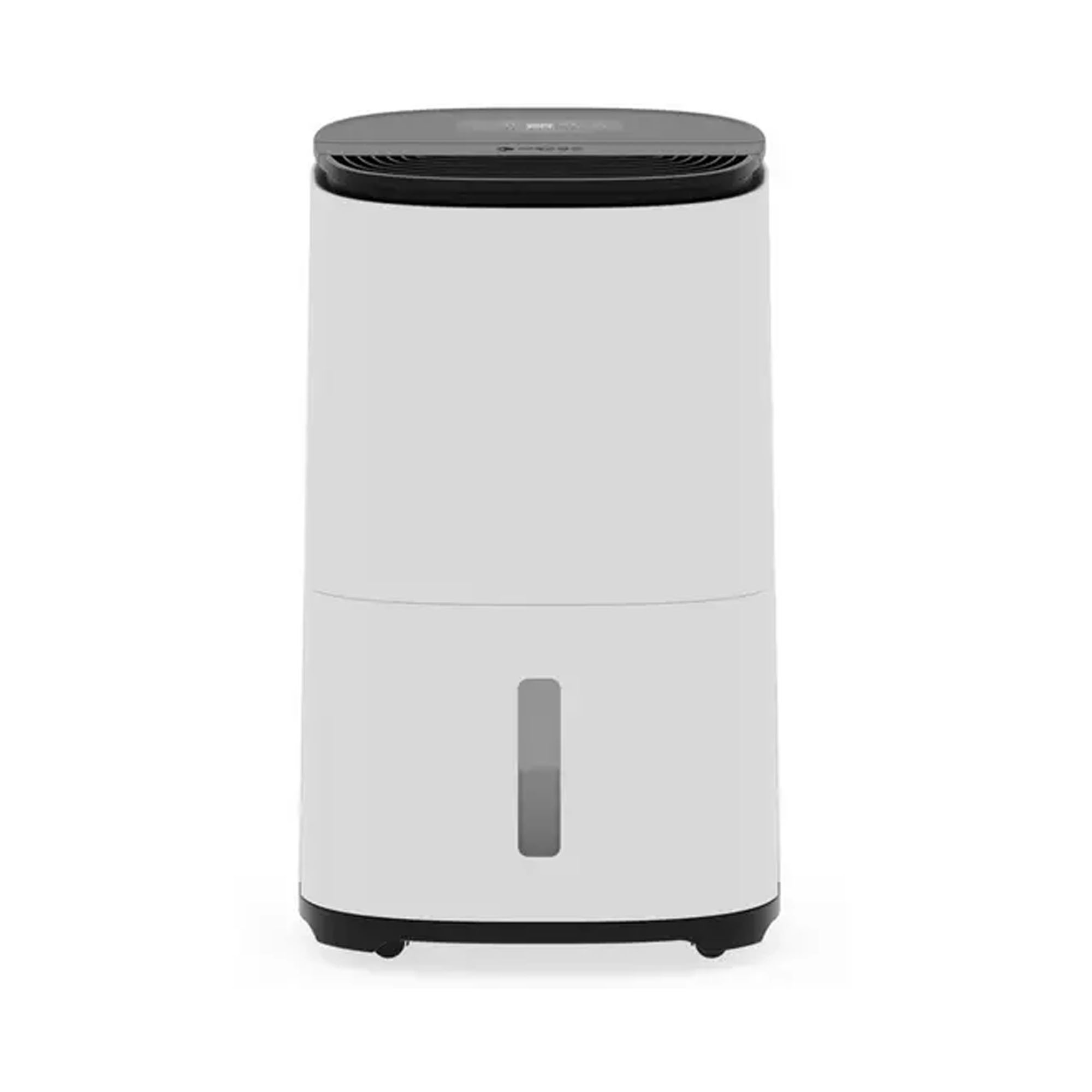
The best dehumidifier we've tested, the MeacoDry Arete One is quiet, easy to use, works superbly and is very energy-efficient compared to other compressor dehumidifiers. Plus, its Smart Laundry Mode is brilliant at drying wet washing.
What is an air purifier?
Nowadays, big brands such as Dyson, Beko, Meaco, and Philips all sell air purifiers. While there are many air-purifying plants out there, nothing comes close to the power of this appliance.
‘Air purifiers are designed to remove various contaminants from the air in a room. They remove everything from dust, airborne germs and disease, pollen, smoke, and more,' explains Nicholas Auckland, energy expert at Trade Radiators.
Get the Ideal Home Newsletter
Sign up to our newsletter for style and decor inspiration, house makeovers, project advice and more.
‘They have filters that capture and then purify pollutants, and there are several different types of filters you can choose from when you buy an air purifier so that you can opt for one that's tailored to your needs.’
‘For example, if you're buying one to deal with removing viruses and germs/bacteria in particular, you could opt for one with a UV C light filter. These filters use ultraviolet light to kill viruses and bacteria in the air.’
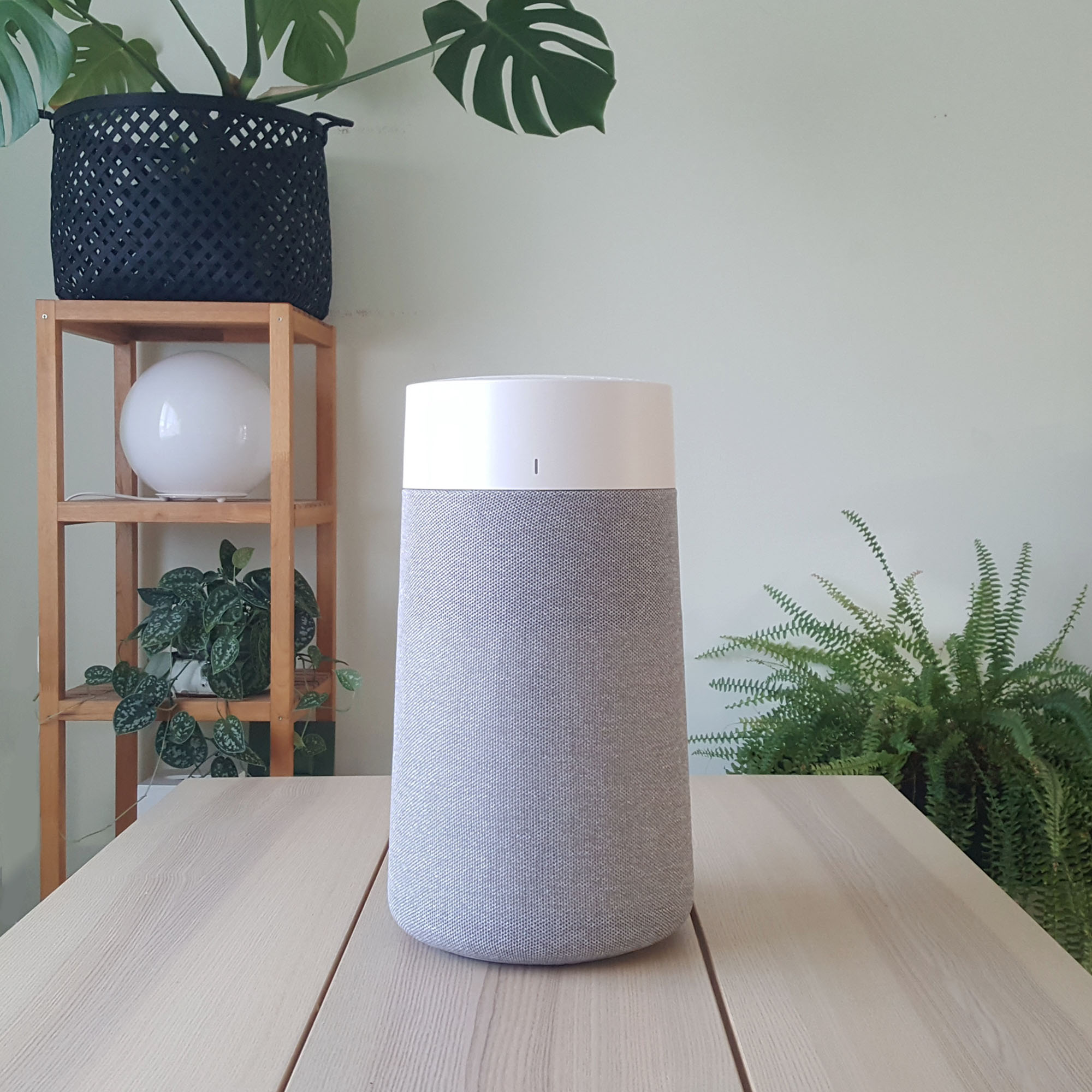
‘Most air purifiers that you can buy for your home have a HEPA filter - high-efficiency particulate air filters. These filters remove a high number of airborne pollutants and can capture tiny particles, making them highly effective even in a home setting.’
In fact, almost all of the air purifiers in our best air purifiers guide come with a HEPA filter as standard. This includes the Philips Series 3000i Connected Air Purifier, which has been crowned the ‘most powerful’ air purifier that we’ve found over the course of our testing process.
In fact, our Ideal Home tester, Caroline Preece, gave this particular air purifier an impressive 4.5 stars out of 5 during her Phillip Series 3000i Connected Air Purifier eview.

Nicholas Auckland is a heating and energy expert with over 10 years of experience in the industry, as well as the Managing Director of Trade Radiators. Nicholas is dedicated to finding the best heating solutions for every need, as well as optimising energy usage, reducing costs and helping others live with lower-cost energy bills.
What is a dehumidifier?
Whether you're looking to get rid of damp or dry clothes quickly at home a dehumidifier is the appliance for the job. In a nutshell a dehumidifier reduces the humidity in a room.
As Chris Michael, Managing Director at Meaco, says, 'There are four types of dehumidifier sold to the domestic market in the UK - Compressor, desiccant, peltier and absorbent salt-based (calcium chloride or silica gel). Compressor and desiccant machines use an inbuilt hydrometer to measure the relative humidity.'
'Consumers can set a target humidity, and the appliance will work towards meeting that target, switching itself off when it's reached, only switching on again when it detects an increase in humidity. This is the most cost-effective way to manage indoor humidity.'
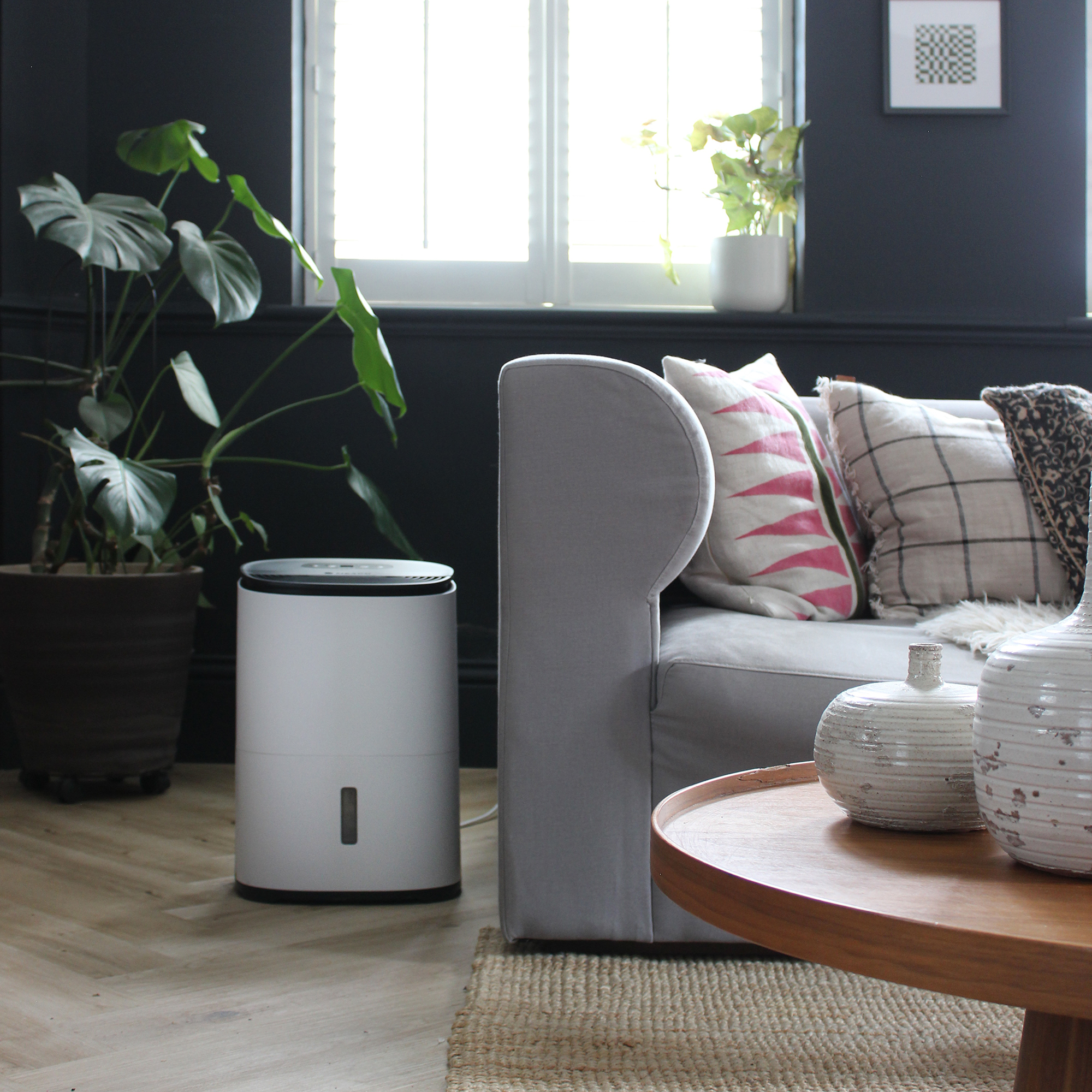
'A compressor-based dehumidifier draws the air in from the room over a filter and passes it over some cold coils similar to the coils on a fridge. As the coils are cold, water condenses and drips into a bucket. The air is then reheated to room temperature and blown back out of the dehumidifier.'
'A desiccant dehumidifier draws the air from the room in over a filter in the same manner as a compressor dehumidifier, but unlike the compressor dehumidifier, it has no compressor and no cooling coils. Instead, it uses a wheel filled with a moisture-absorbing desiccant material to extract the water from the air. The air is then reheated to about 10°C above room temperature and is then blown back into the room.'
Just remember that when you buy a dehumidifier, you need to make sure you buy the right size for your home. Not only that, but you need to remember to empty the tank when it’s full.

Chris has been advising on humidity solutions and dehumidifiers since 1991 and is well known within the dehumidifier industry across the world as a lead on innovation and sustainability. Since the mid-90s Chris has been a guest speaker at numerous conferences to teach museum conservators how to measure relative humidity. With a wealth of experience in the industry, Chris is committed to helping provide low-energy and low-noise solutions appliances that improve the lives of customers.
Air purifiers vs dehumidifiers: Which is better for your health?
In the grand scheme of things, air purifiers and dehumidifiers are both impressive additions to your home. Because of this, it’s hard to say whether one is better than the other - especially when it comes to your health.
On the one hand, air purifiers are perfect for those who already have health concerns or want to prevent future health concerns. Nicholas says, ‘You might buy an air purifier if you have allergies such as pet or pollen allergies, as air purifiers help to remove the pollutants that set off allergic reactions. You also might buy an air purifier if you have a weakened immune system, as they help to capture viruses and bacteria.’
And while a dehumidifier cannot get rid of mould, it can stop it from getting worse or from appearing in the first place. That’s why using a dehumidifier to remove excess moisture from the air is also beneficial for those with a weakened immune system or breathing difficulties, as the excess moisture and mould spores can wreak havoc on those with asthma or other respiratory conditions.
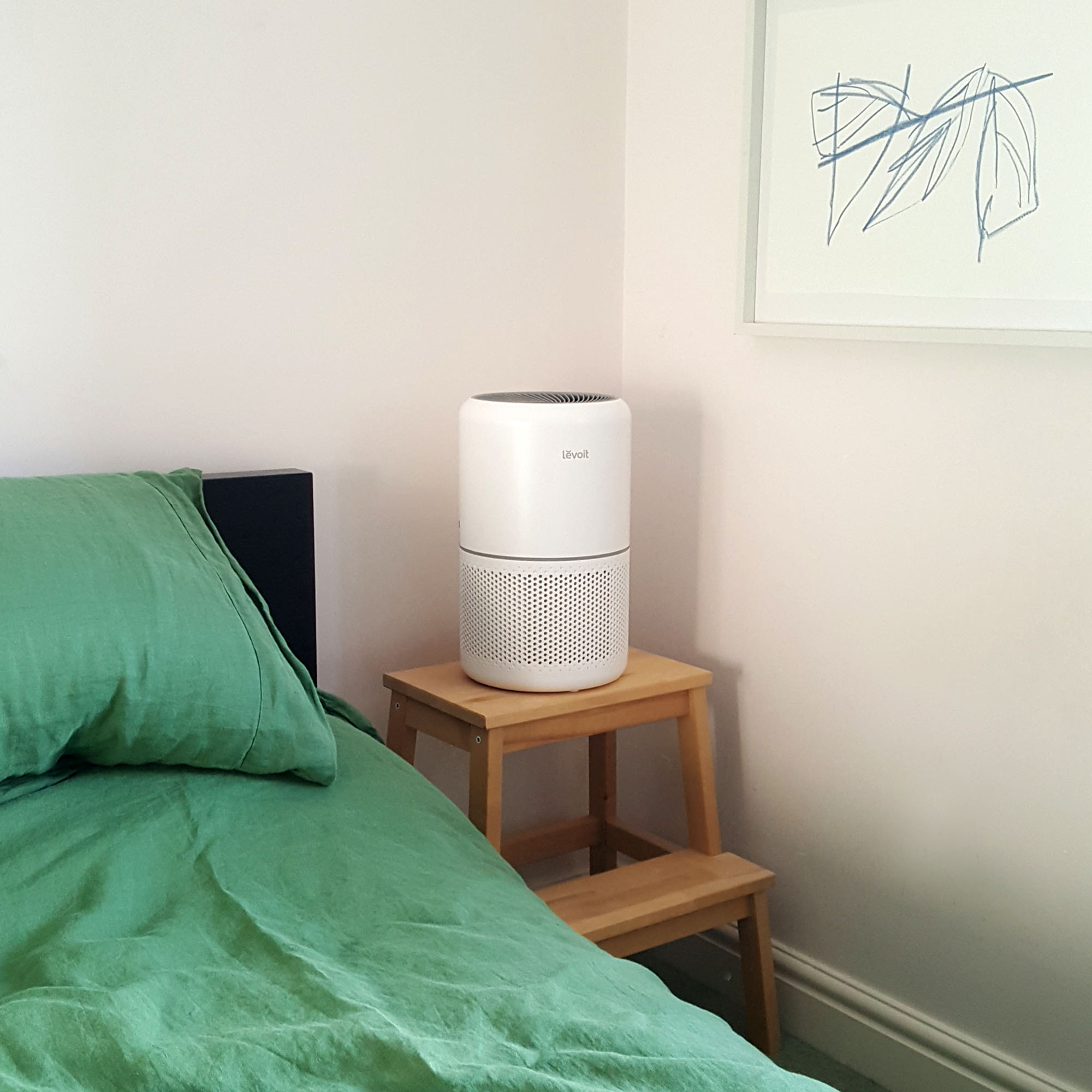
Air purifiers vs dehumidifiers: Which is better for your home?
When it comes to the health of your home, there is a clear winner in the air purifier vs dehumidifier debate. After all, excess moisture can have disastrous consequences if not dealt with as soon as possible. It can even lead to structural damage in your home.
Whether you’re looking to tackle the excess moisture in your bathroom with a bathroom dehumidifier or you’re trying to stop damp in a bedroom, a dehumidifier can not only reduce this condensation and the opportunity for mould growth but can also work hard to maintain the humidity in your room.
Nicholas says, ‘A dehumidifier can be a real hero when it comes to banishing mould and condensation, and I always recommend purchasing one to anyone struggling with excessive condensation, mould and high humidity levels. Almost nothing else but making structural, expensive changes can completely fix this problem, so a dehumidifier is the perfect option if you're not in the right place to spend thousands.’

By using a dehumidifier, you can create an environment where you and your home can live together harmoniously without any mould breakouts or costly maintenance bills. You just need to make sure that you avoid these dehumidifier mistakes if you want to keep your home mould-free.
On the other hand, air purifiers benefit the people inside the home more than the home itself. Sure, an air purifier can remove mould particles from the air and even reduce the prevalence of dust and smoke stains, but ultimately, they just don’t trump dehumidifiers when it comes to maintaining the integrity of your house.
Air purifiers vs dehumidifiers: Which is more affordable?
When looking at the affordability factor of air purifiers and dehumidifiers, there are two things we need to take a closer look at; the price of the appliance itself and then the price of running said appliance.
Let’s start with air purifiers. The most affordable air purifier we’ve tested (and loved) so far is the Levoit Core 300 Air Purifier, which retails at £109.99 when it’s not on sale for less. This is generally the going rate for an air purifier that provides you with everything you need.
At the other end of the spectrum, we have the most expensive air purifier on our list, which is the Dyson Purifier Humidify+Cool HP09 Formaldehyde, which retails at £699.99. However, it’s important to note that the Dyson purifier is so much more than an air purifier. It’s actually a multifunctional air purifier, fan, and humidifier in one nifty appliance, and with the famous Dyson aesthetic added in for good measure, it’s hard to compare this to the other air purifiers on the list.
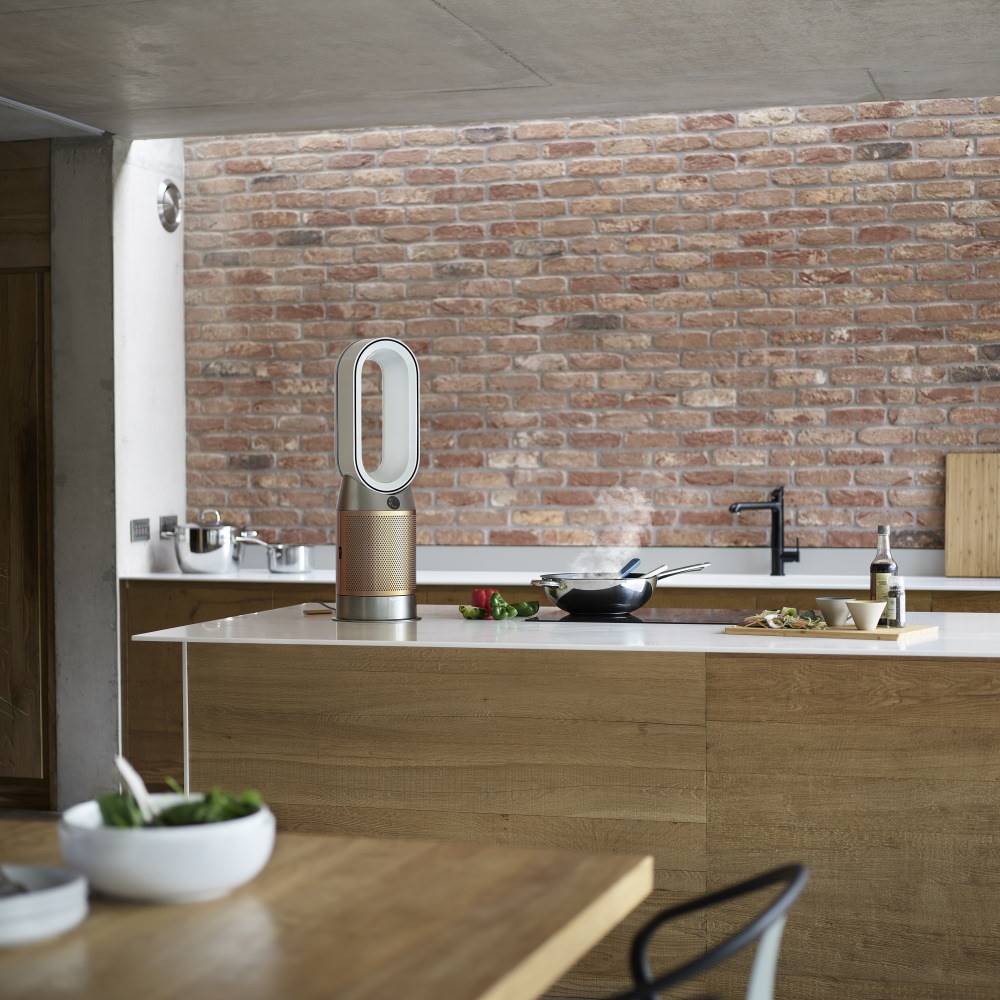
But what about dehumidifiers? Well, they’re certainly a little cheaper. There are so many dehumidifiers under £100, and our firm favourite has to be the ProBreeze 1500ml Mini Dehumidifier. At just £69.99, it’s a budget way to keep your home mould-free - but it’s important to note that there’s a limit to that.
The ProBreeze is capable of reducing moisture in a 15m² area, so you might need to buy a couple if you want to tackle your whole house. Alternatively, you could opt for a budget dehumidifier that has a larger capacity, like the Russell Hobbs RHDH2002 20L Dehumidifier, which retails at £199.
In terms of the top price for dehumidifiers, you could pay hundreds if you really wanted to. But in a normal house without any major moisture or mould issues, you shouldn’t need to buy something that pricey.
Air purifiers vs dehumidifiers: Which is cheaper to run?
While it’s clear to see that dehumidifiers are often cheaper to buy, it’s also important to note how much these different appliances cost to run.
Although you can read more about air purifiers on our cost to run an air purifier page, this ultimately depends on the current energy price cap and the wattage of the air purifier. At the time of writing, the current price cap (until 31 March 2024) is 28.62p per kWh. Based on the current prices, a 50W air purifier will cost you less than 1p per hour to run.
The same can be said for how much it costs to run a dehumidifier. It’s fairly easy to find a 50W dehumidifier, but even if you opt for a larger and more powerful dehumidifier at 157W, this will still cost you under 5p an hour.
Final verdict: Which one do you need?
The debate between these two appliances has been a tough one, as both air purifiers and dehumidifiers have their perks. They’re both very different but offer similar positive qualities that everyone should employ at home.
Only you will be able to choose a clear winner based on the needs of your own home. Joshua Warren, dehumidifier and air purifier expert at AO.com says: ‘The choice between an air purifier and a dehumidifier is a complex decision. With many struggling with the cost of heating their homes, households can use dehumidifiers to fight mould and mildew. They are terrific at absorbing the moisture left by damp conditions and help to protect your home from this reoccurring.’
‘Looking ahead to the warmer months, this is truly where an air purifier comes into its own – particularly for those suffering from allergies. If you’re perhaps a person who struggles with hay fever, look out for appliances with a HEPA filter as these models are specialised in improving air quality by removing allergens.’
If you can stretch to it, we would recommend investing in both appliances for a happy and healthy home. We’d suggest using both of these appliances throughout the year to maximise the benefits.
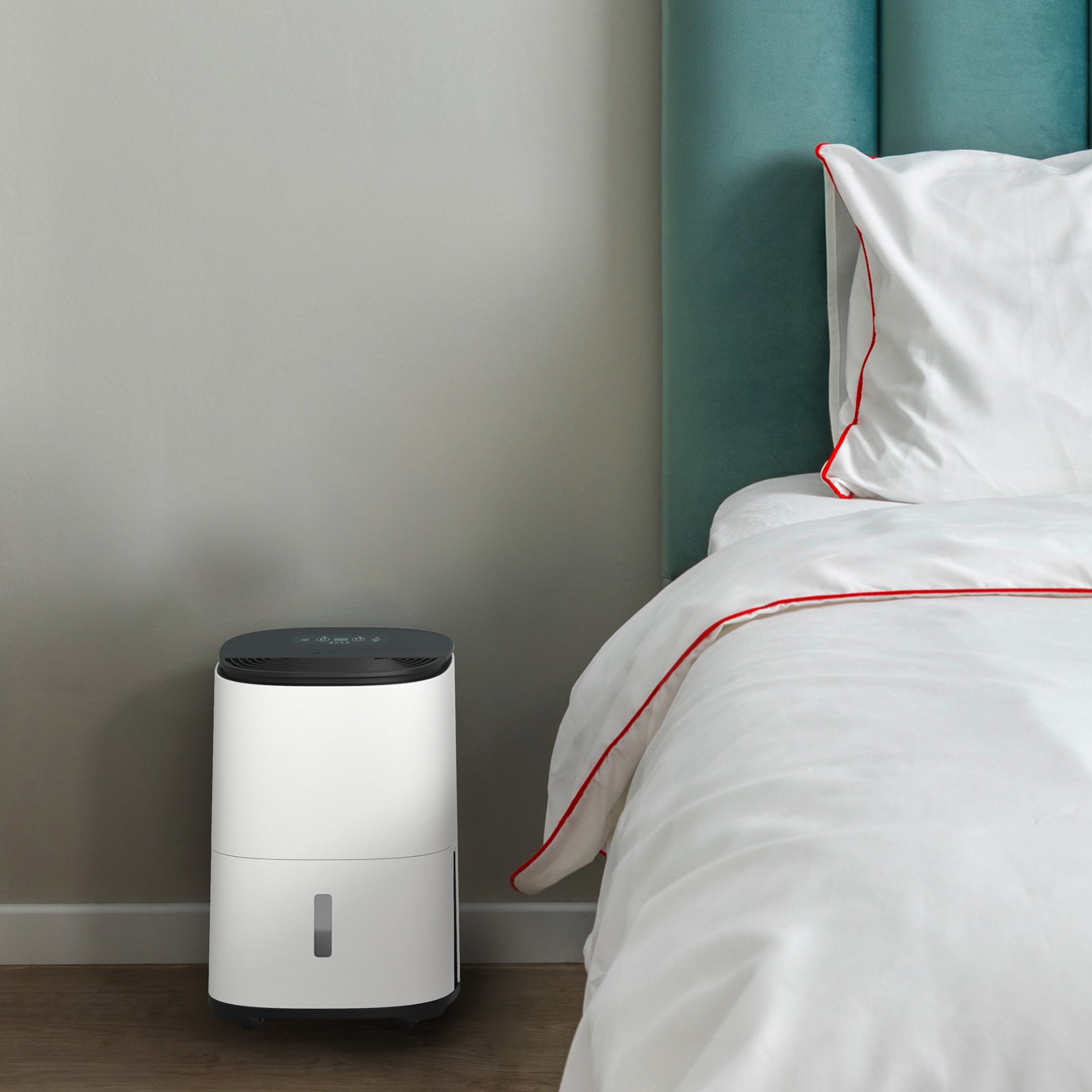
Of course, we understand that buying two appliances, and finding the space for them might not be an option but there is a third option. The MeacoDry Arete One Dehumidifier and Air Purifier offer the best of both worlds. We found in our MeacoDry Arete One Dehumidifier and Air Purifier review that it combines the benefits of these two products in one stylish appliance.
Chris Michael, Meaco’s managing director, says, 'By addressing humidity and air cleanliness, a dual unit helps protect the fabric of the home and the health of its occupants. It helps those with respiratory health issues, allergies and other health concerns caused by damp and poor air quality.'
'As a dual-use appliance, it can be switched to air purification mode during the warmer months, which offers extra protection from the increased levels of pollen and pollutants that can come into the home from opening windows and doors.'
So, this could be a good option for those who can't decide between an air purifier or a dehumidifier.
FAQs
What is better an air purifier or a dehumidifier?
Ultimately, this depends on your needs. If you’re looking to remove excess moisture from your home to combat growing mould or stubborn condensation, a dehumidifier is the perfect appliance for you.
If you don’t have a problem with your humidity but do have a problem with your itchy skin and allergies, there’s no doubt that an air purifier can help you. This appliance removes dust particles and toxins from the air, allowing you to breathe better.
Does an air purifier dehumidify a room?
No, air purifiers don’t remove excess moisture from the air. They are designed to remove toxins from the air but cannot help with the humidity of a home.
However, you can buy a two-in-one appliance that is both an air purifier and a dehumidifier, which can be a handy option for those looking to take advantage of both products.
Consider what the priorities for your home are before taking the plunge and investing in one of these handy gadgets.

Lauren Bradbury has been the Content Editor for the House Manual section since January 2025 but worked with the team as a freelancer for a year and a half before that. She graduated with a Bachelor’s degree in English and Creative Writing from the University of Chichester in 2016. Then, she dipped her toe into the world of content writing, primarily focusing on home content. After years of agency work, she decided to take the plunge and become a full-time freelancer for online publications, including Real Homes and Ideal Home, before taking on this permanent role. Now, she spends her days searching for the best decluttering and cleaning hacks and creating handy how-to guides for homeowners and renters alike, as well as testing vacuums as part of her role as the Ideal Home Certified Expert in Training on Vacuums, having spent over 110 hours testing different vacuum models to date!
-
 How to attract robins to your garden – experts reveal the exact bird box you need and where to place it
How to attract robins to your garden – experts reveal the exact bird box you need and where to place itRobins are the UK's favourite bird, and this is how you keep them coming back to your garden
By Kezia Reynolds
-
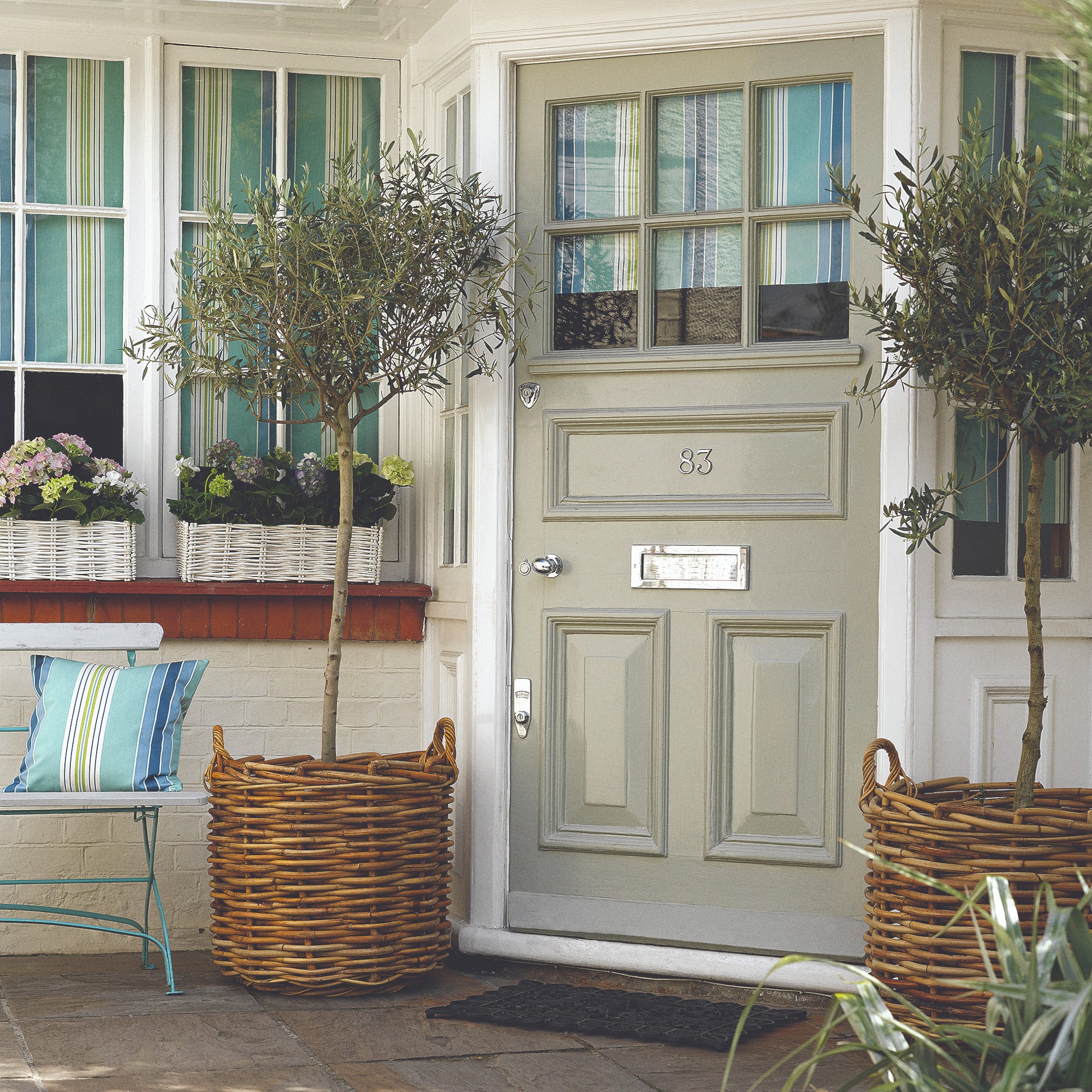 10 of the best plants for a Mediterranean garden for an outdoor space that mirrors the gardens of Italy, Spain, France and Greece
10 of the best plants for a Mediterranean garden for an outdoor space that mirrors the gardens of Italy, Spain, France and GreeceChannel sunnier climes with these plants, shrubs and trees
By Sophie King
-
 Take a tour of this practical, yet brilliantly relaxing family bathroom
Take a tour of this practical, yet brilliantly relaxing family bathroomPractical and relaxing, this family bathroom has it all
By Ali Lovett